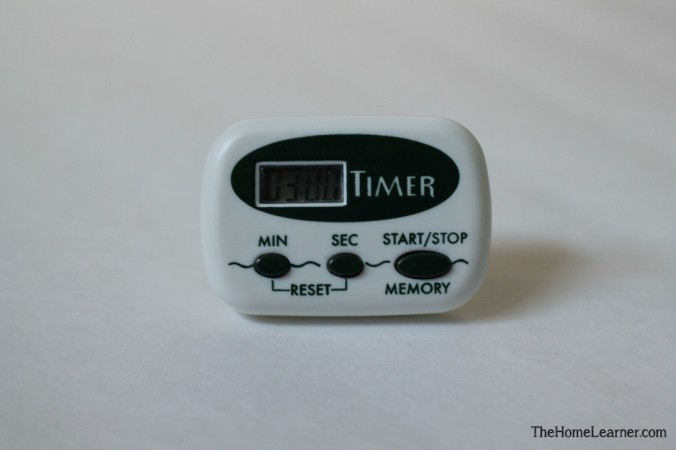I have two basic goals when it comes to getting out of the house with kids in tow:
- Arrive to the appointment on time
- Be kind
Often times, I have compromised #2 in order to accomplish #1. But when I yell at my kids to speed them up, something happens every time: they slow down even more.
I’ve learned over the years of parenting that it’s just better for my constitution to expect complications and give everything double the amount of time it should take. After all these little people are little. They simply cannot operate at an adult speed and they certainly can’t plan ahead. Their disposition to be magnetized by distraction is built into the fiber of their being. This is what makes them curious and playful. It’s what brings them joy and laughter.
Their slowness is a goodness.
So I set out to make peace with them and with being on time. And these steps have helped me and brought more joy to our mornings than I ever thought possible.
- Plan ahead. I know what appointments I have for the next day. Even when my calendar is completely open: I make it a point to know what time I have and own that time.
- Budget time. I start by figuring out how I spend an hour. Then I timed myself doing my daily tasks to see how long it actually takes to empty the dishwasher, etc. For me, it takes 7 minutes to apply my make-up from start to finish. This little detail helps me know how to order the steps in my morning to accomplish multiple things simultaneously.
- Direct kids with one command at a time. I can’t give two-part instructions. This is huge; it’s the most important step to this process. For example, I do not say “bring your books upstairs, put them back on the shelf, go in your room and get changed, and then come in the bathroom to brush your teeth and wash your face.” Instead I:
- Start with “bring your books upstairs now, please. You have 3 minutes.”
- Keep them accountable for that one thing. Correcting and guiding them to obey one simple task at a time. This needs to be done with great patience for the slow and distracted kids.
- Set a timer for everything. Every single task. Don’t skip this step. I need the beep, they need the beep. After hearing the beep for another 2 minute task, I start to feel the passing of 2 minutes without the beep. This is true for them too. I used to get lost in my own routine- I’d forget how long I had been staring into my closet for what to wear. Now I give myself 2 minutes and if it isn’t picked by then I have to move on and come back.

- Give them a clear plan for when we need to arrive.
- This is an opportunity to teach them to tell time. We started them young by using a digital clock and only highlighting the hour.
- Tell them how long it will take to travel to our destination.
- Have a countdown to when we need to leave to arrive on time with the amount of time necessary in between.
- Don’t yell. Sounds easier said than done, I know. But I knew I needed to change this habit first, and train them second. Their behavior will follow.
- Some kids get slower when yelled at because of their fight or flight instinct. They can’t learn or listen when their brain has shut down because of fear.
- I’ve mentally prepared to give myself a “time out” when frustrated and tempted to yell. Sometimes my time out is closing my eyes, and I don’t speak until I can do so calmly.
- I’m not aiming for perfection. I don’t want to be rigid and uptight. My goal is excellence so I need to take my circumstances into context.
- Don’t check my phone. Rarely have I actually missed a texted that would have changed my plans if I had read it before leaving the house. When my phone is on silent and I don’t pick it up while getting ready I save myself from becoming disoriented.
I’ve learned that living with little people is for them but not about them. This process of discipline and growth has been about changing my habits. Whether I will work hard and own my goals or not. No one will help me get out of the house on time for me. It isn’t convenient. I feel like everyday I am tested too much, but we have had such consistent success when I’ve followed these steps and rested in knowing I’ve done my best.
When we arrive smiling, I look at their faces and all the work has been worth it.
For more help in managing your time well, check out this course called “Make Over Your Mornings” by Crystal Paine. Her course can help you live with more peace and purpose.
For more encouragement from The Home Learner, click here.


I deal with this on a regular basis at work. The same principles in this article apply to my manufacturing job too. We use timers and break everything in to hour-by-hour chunks. It’s more manageable than trying to bite off a whole day’s worth of work. This works at all ages. Great article. Thanks!
LikeLike
I didn’t know you used timers – I’m sure it works the same way for you as it does at home. It’s so important to be able to feel how much a certain amount of time is. Otherwise, “5 minutes” or “10 minutes” are indistinguishable and if something could be done in 5 but the person takes 10 – that’s 5 minutes wasted.
LikeLike